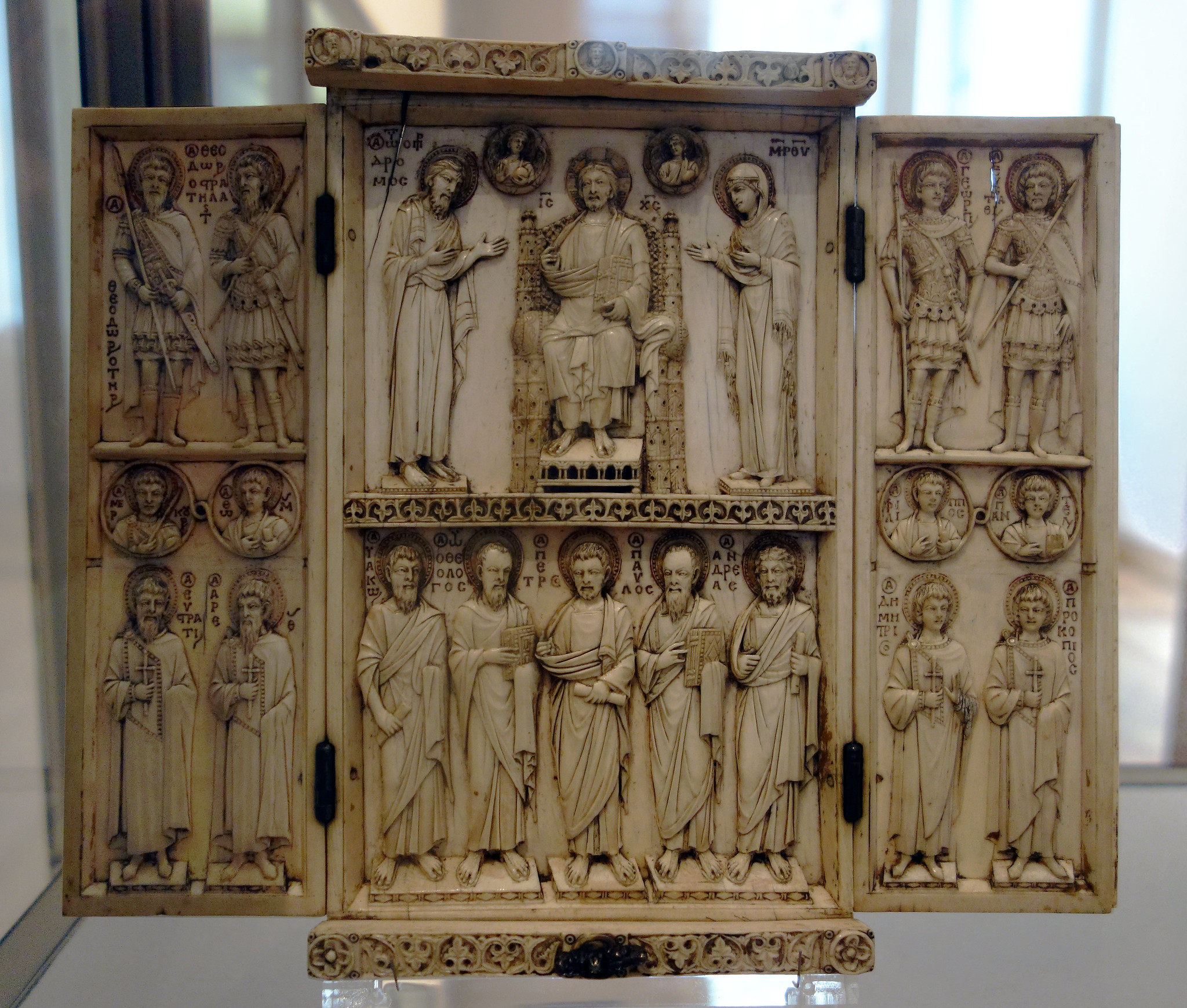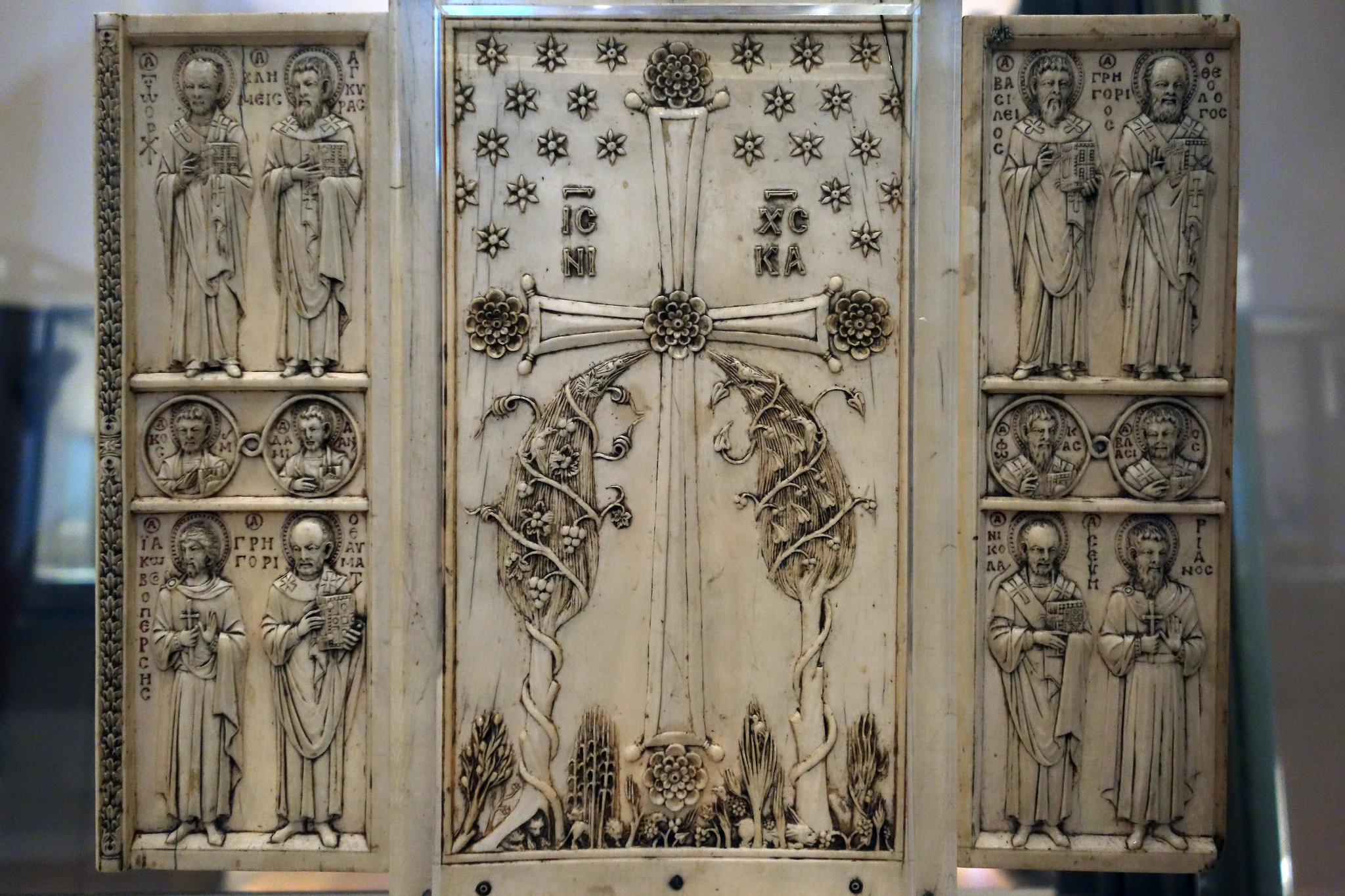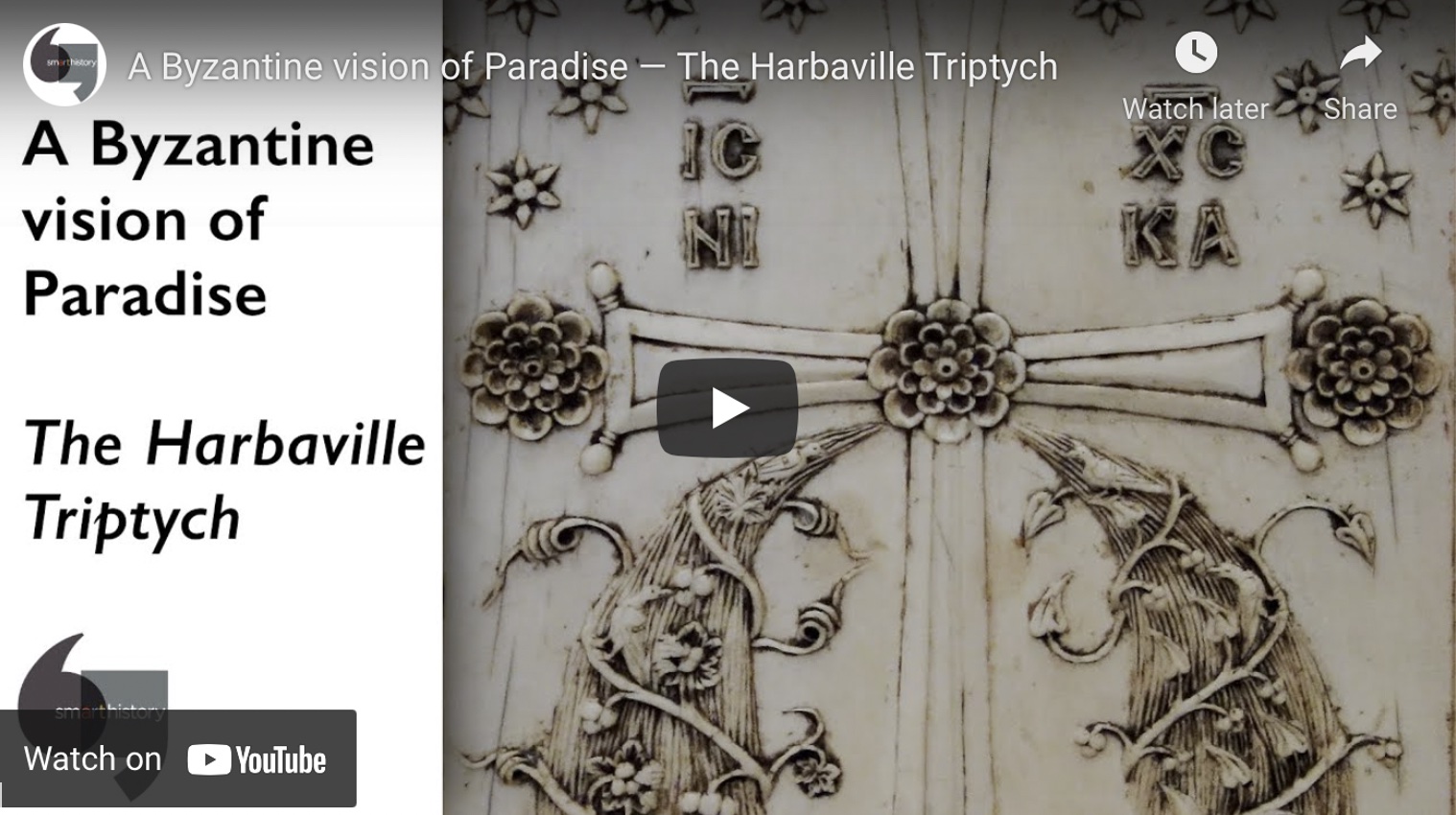37
Questions for study or discussion
Dr. Anne McClanan and Dr. Evan Freeman
https://smarthistory.org/a-byzantine-vision-of-paradise-the-harbaville-triptych/
Thinking about context
- How was this triptych used?
Thinking about this object
- What materials and techniques were used to create this triptych?
- What role do materials and techniques play in the triptych’s appearance?
- What role do materials and techniques play in the viewer’s experience of the triptych?
Thinking about iconography
- What does the Deësis scene depict?
- How do the figures in the Deësis scene relate to each other with their body language?

- What else is depicted on this triptych?
- What does this imagery suggest about the triptych’s owner and broader social setting?
- What role does nature play in the imagery on this triptych?
Thinking about art history
- How can we understand this triptych against the background of the Iconoclastic Controversy and the broader history of art?
Watch the video. <https://youtu.be/jpO3PiXrTZ4>


